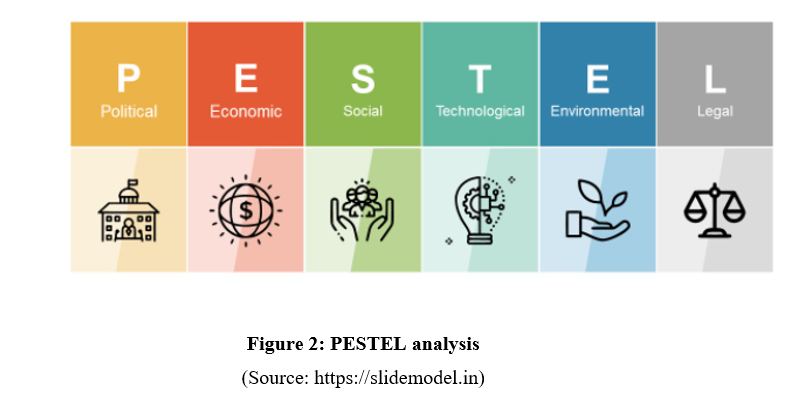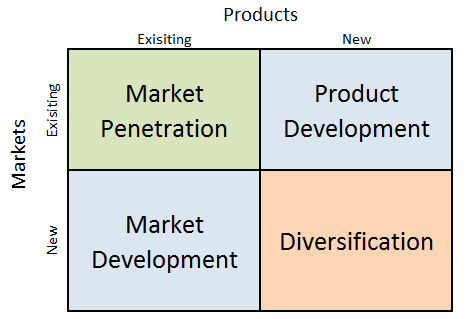BS7104 Assignment Sample – Entrepreneurship In An International Context 2023
1. Introduction
Small and medium-sized enterprises (SMEs) play a significant role in developing the nation’s economy and the UK provides an effort to develop the conductive environment. The aim of this study is to examine the role of small enterprises in developing the economy of the UK, especially focusing on Cafepod. The business operations of the small organization boost economic growth and deliver more inclusive globalization.
The developing countries support the effort of SMEs to achieve the highest sustainable growth through overcoming different barriers and difficulties. The report sheds its light on the background of the UK and its effort in developing a conducive environment for entrepreneurship through the identification of issues and problems in creating small enterprises.
2. Background of the country or region
In the UK, the linkage between economic growth and small and medium-sized enterprises has attracted increasing attention from different experts. As opined by Pinto-Correia et al. (2021), the importance of SMEs is surprising and the World Bank approves around 1.3 Billion dollars to support SMEs programs. There are around 6.0 million SMEs in the UK which covers 99% of overall businesses and a wide range of employees are associated with this business.
In this country, SMEs account for three-fifths of employment and contribute 217 billion euro to the UK economy (Butenko, and Gromova, 2019). These SMEs contribute 47% of annual turnover to the UK economy and the emergence of technology and rise of digitalization led to the tremendous growth of the number of SMEs.

The favourable support from the UK government and the demand of several customers are the potential reasons for this increasing number of SMEs. The big consumer market, a popular destination of foreign direct market (FDI), financial and technological advancement are the crucial advantages of the country (Glonti et al. 2021). The stability of the UK government and legal facilities of the region provides support to the SMEs and this assists in developing the nation’s economy.
Effort for developing an environment conducive for entrepreneurship
The UK provides significant effort to develop a conducive environment for entrepreneurship and enhances the growth of SMEs. According to the view of Bulturbayevich (2020), the SME’s suppurative programs are conducted every year by the UK government through investing a huge amount of funds. The country is popular for countless start-ups and the world’s most celebrated culture of entrepreneurship through investing in products, services, and people.
In achieving a sustainable goal and improving the nation’s economy, the government has initiated different policies and promoted the emergence of entrepreneurs. The government further optimizes the regulatory environment through promoting awareness and networking and measures the effectiveness of entrepreneurship policies.
As cited by Butenko, and Gromova (2019), this immense support and effort of the government create a conducive business environment for entrepreneurs. This further assists several citizens through providing employment opportunities and increases the number of new start-ups and SMEs.
3. Knowledge creation
Role of SMEs in developing nation’s economic growth
The emergence of technology and the rise of digitalization lead to the development of several business activities and increase the number of new start-ups and entrepreneurs. In the UK, SMEs play a significant role in improving the nation’s economy, and the renowned organization Cafepod continues its business by satisfying different customers (Cafepod.com, UK, 2021).

The rising economy and the contribution of SMEs are striking and provide employment opportunities to different citizens. Cafepod is popular for its sustainable and innovative activities and serves flexibilities and risk-taking abilities through increasing productivity and market diversity (Petrova et al. 2020). These innovation and sustainable activities of the organization work better in satisfying different customers and the organization is experiencing incredible business growth.
Supply chain operations with MNCs are fundamental for the improvement of SMEs and it achieves a huge amount of revenue. In the words of Mboga, and Amin (2019), multiple operations, innovation, change, product differentiation are significant in satisfying customers and creating brand awareness. The organization has a propensity to employ labour-intensive production processes and contribute to the provision of employment opportunities.
SMEs create a new market and understand different customers and their needs to fulfil their needs. In this critical business situation, the SMEs create grateful contributions to satisfy different costumes and archive a huge amount of revenue (Tsekhanovych, 2021). Cafepod satisfies a wide range of customers through increased productivity and evolving through innovation and change. In the growth of employment and the nation’s economy, the contributions of the SMEs are significant as well as striking.
In this digital era and critical business situation, the presence of SMEs is the fundamental objective to improve the nation’s economic and employment growth. As cited by Alene (2020), SMEs are developing together with FDI and taking a dominant place within the country, and satisfying different customers. Participation with global supply chains is significant that brings stability to SMEs and assists in reaching different customers to improve the growth.
Strong supply chain management, implementation of advanced technologies assist in developing the financial condition of the SMEs (Guarín et al. 2020). The organization satisfies different customers and therefore improves the nation’s economy and increases employment.

4. Knowledge exploitation
Identification of critical issues related to the supportive environment
The SMEs are facing different difficulties in the national barriers and sometimes due to the lack of a supportive environment. As opined by Donskova et al. (2021), inadequate access to marketing platforms, lack of required credit, cumbersome regulatory practices, and lack of access to advanced technology are the major issues that disrupt the environment of SMEs.
Cafepod is also facing different challenges due to these major issues for lack of required credit due to this sudden outbreak of COVID-19 and Brexit issues. In recent times, lack of professional employees is the crucial issue for this social distancing and spreading of the contagious disease (Williams et al. 2019). Inappropriate marketplace and in satisfying several customers, the organization is facing critical problems and this disrupts organizational culture and structure.
The inadequate working capital, presence of different MNEs, and low capacity utilizations are the crucial reasons behind this poor organizational structure of SMEs. As opined by Donskova et al. (2021), the economic crisis is the major problem and it creates diverse external problems and the poor educational background of operators represents a lack of organizational operations and performance.
Cafepod is facing severe problems because of this economic crisis and difficulties in engaging professional employees and the existence of several competitive organizations.
Problems surrounding new small enterprise creation
In creating a small enterprise or new start-up, the SMEs face severe difficulties in sourcing raw materials and poor supply chain management. Recently, the rampant corruption of the legal system, the presence of different industrial regulations, and government subsidiaries are the major business problems (Williams et al. 2019).
The leading SMEs, Cafepod, are facing severe problems due to the complex legal system and regulations. According to the view of Guarín et al. (2020), the low capacity utilization and sourcing of raw materials create core barriers in managing different operations. In creating a small enterprise, lack of funds is the major business problem that leads to different business complexities and issues.
The sudden outbreak of COVID-19 is another barrier of the organizations in engaging different customers and this creates severe economic fall. As influenced by Mboga, and Amin (2019), weak supply chain management is another barrier that surrounds the creation of small enterprises and it leads to other business complexities.
Sometimes, the higher inflation rate, the absence of proper industrial regulations, and rampant corruption are other issues that cover SMEs. The organizations are facing several problems due to the unavailability of proper credit, complex documentation, strict repayment tenures, and high-interest rates. Human resource constraints, the presence of renowned organizations, inadequate business operations, and difficulties in complying with government regulations are major business problems.
5. Conclusion and implications
Conclusions
Based on the above discussion about SMEs, it can be concluded that SMEs play a significant role in developing the economic growth of the nation. Cafepod in the UK creates a potential contribution in engaging different customers and achieving revenue through increasing productivity. The strong supply chain with MNCs assists the organization to reach different customers and improves its economic level. The strong support of the UK government is fundamental for the creation of SMEs in these critical business situations.
The study has developed the role of SMEs in developing the economy and employment of the countries through satisfying customers. Some potential challenges have also been discussed that cover the surroundings of new start-ups and the creations of SMEs. The lack of economic growth is the major challenge of organizations and the organizations are facing difficulties due to complex business rules and regulations.
Implications
The SMEs create a significant contribution to developing nations’ economies and provide opportunities for increasing employability. These organizations are evolving through continuous changes, product innovations, and implementing advanced technologies to improve organizational growth. In managing and satisfying different customers, these organizations play a significant role, and the strong support of the government assists in creating a conducive environment for entrepreneurship.
The organization further faces different challenges due to the lack of economy and different business complications that disrupts the overall business structure. Complex business regulations and the sudden outbreak of COVID-19 create different business problems and disrupt the operations of SMEs.
References
Alene, E.T., 2020. Determinants that influence the performance of women entrepreneurs in micro and small enterprises in Ethiopia. Journal of Innovation and Entrepreneurship, 9(1), pp.1-20. Available at: https://link.springer.com/article/10.1186/s13731-020-00132-6
Bulturbayevich, M.B., 2020. Theoretical and Methodological Bases of Assessment of Innovative Potential of Industrial Enterprises. International Journal of Progressive Sciences and Technologies, 22(2), pp.11-18. Available at: http://ijpsat.es/index.php/ijpsat/article/view/2124
Butenko, O.P. and Gromova, A.V., 2019. Determinants of competitiveness of small and medium-sized business enterprises. Вісник економіки транспорту і промисловості, (65), pp.19-24. Available at: http://www.irbis-nbuv.gov.ua/cgi-bin/irbis_nbuv/cgiirbis_64.exe?C21COM=2&I21DBN=UJRN&P21DBN=UJRN&IMAGE_FILE_DOWNLOAD=1&Image_file_name=PDF/Vetp_2019_65_4.pdf
Cafepod.com, uk, 2021, About Us, Available at: https://www.cafepod.com [Available on: 30th October, 2021]
Donskova, L.I., Kryukova, E.M., Khetagurova, V.S., Sulyagina, J.O. and Fomicheva, T.V., 2021. Innovative Activity of Russian Tourism Enterprises. REVISTA GEINTEC-GESTAO INOVACAO E TECNOLOGIAS, 11(4), pp.1707-1718. Available at: http://www.revistageintec.net/index.php/revista/article/view/2221
Glonti, V., Manvelidze, R. and Surmanidze, I., 2021. The Contribution of SME to Regional Economic Development: On example of Adjara Autonomous Republic. European Journal of Sustainable Development, 10(1), pp.513-513. Available at: Available at: http://ecsdev.org/ojs/index.php/ejsd/article/view/1187
Guarín, A., Rivera, M., Pinto-Correia, T., Guiomar, N., Šūmane, S. and Moreno-Pérez, O.M., 2020. A new typology of small farms in Europe. Global Food Security, 26, p.100389. Available at: http://es.revistaespacios.com/a19v40n27/19402704.html
Mboga, J. and Amin, M.R., 2019. Ethics in Small Businesses: A Review of Comparative Literature. International Review of Business & Applied Sciences, p.84. Available at: http://baasana.org/wp-content/uploads/IRBAS_Vol_1_Issue_1_July_2019.pdf#page=84
Petrova, A., Aznabaeva, G., Mineeva, V., Ismagilova, T. and Iraeva, N., 2020. Competitiveness of small and middle business as a significant element of regional economy development. Revista Inclusiones, pp.525-541. Available at: http://revistainclusiones.org/index.php/inclu/article/view/1390
Pinto-Correia, T., Rivera, M., Guarín, A., Grivins, M., Tisenkopfs, T. and Hernández, P.A., 2021. Unseen food: the importance of extra-market small farm’s production for rural households in Europe. Global Food Security, 30, p.100563. Available at: https://www.sciencedirect.com/science/article/pii/S2211912421000729
Tsekhanovych, V., 2021. The role of Euroregions in integration processes. Economics & Education, 6(1), pp.25-30. Available at: http://www.baltijapublishing.lv/index.php/econedu/article/view/1169
Williams, C., Schallmo, D., Lang, K. and Boardman, L., 2019. Digital maturity models for small and medium-sized enterprises: a systematic literature review. In ISPIM Conference Proceedings (pp. 1-15). The International Society for Professional Innovation Management (ISPIM). Available at: https://www.researchgate.net/profile/Christopher-Williams-61/publication/334108295_Digital_Maturity_Models_for_Small_and_Medium-sized_Enterprises_A_Systematic_Literature_Review/links/5d1721e2299bf1547c872612/Digital-Maturity-Models-for-Small-and-Medium-sized-Enterprises-A-Systematic-Literature-Review.pdf
Know more about UniqueSubmission’s other writing services:

